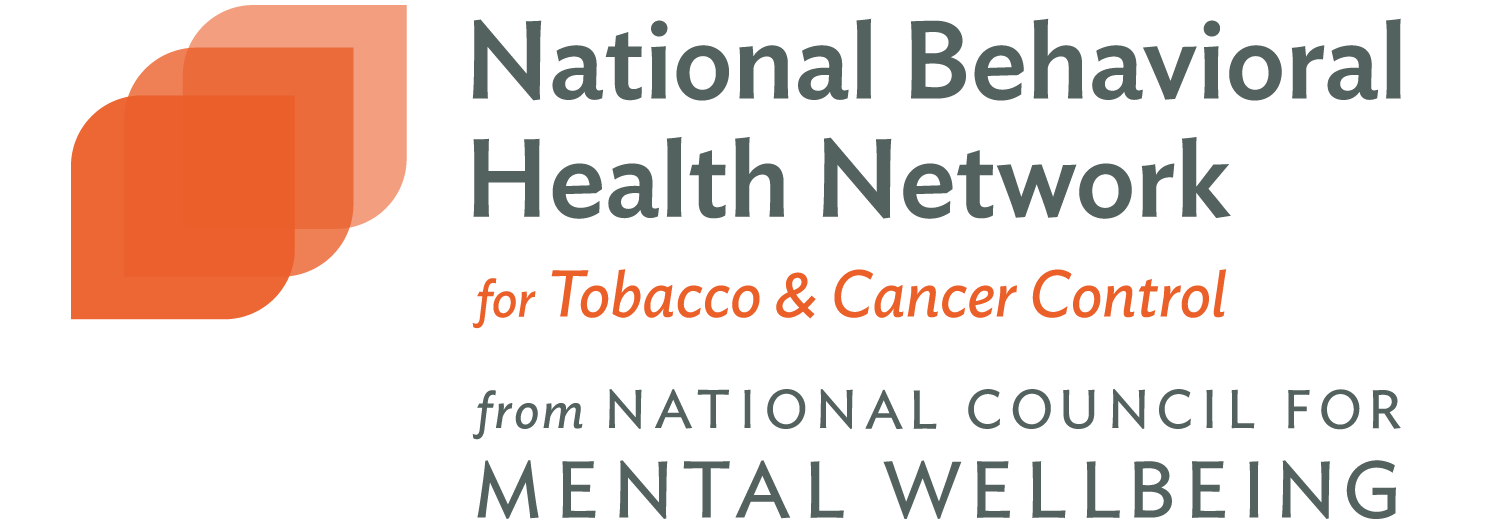Resource Digest: E – Cigarette Use and Mental Health Challenges Among Youth and Young Adults
In 2021, 13.4% of youth (ages 13-18) reported using commercial tobacco products including electronic nicotine delivery systems such as vapes, e-cigarettes, hookahs as well as traditional combustible cigarettes, oral nicotine pouches and cigars (CDC, 2021). Approximately, 81% of youth said that they started using tobacco products to cope with stress, anxiety and depression (Truth Initiative, 2021). However, many young people are unaware that e- cigarettes can exacerbate mental health challenges and engaging in tobacco cessation can improve mental wellbeing.
Youth mental health challenges are a significant predictor of negative life outcomes, and the COVID-19 pandemic has exacerbated this. The 2021 Surgeon General’s Advisory on Protecting Youth Mental Health reported 25% of youth experience depressive symptoms and 20% experience anxiety symptoms. These mental health challenges increase the risk of youth turning to e-cigarettes in hopes of alleviating symptoms of anxiety and depression. While the overall trend of smoking is decreasing, the rapid rise of e-cigarettes among young people is alarming and can lead to higher rates of nicotine product use.
The following can enhance provider and stakeholder knowledge around e-cigarette use and provide useful resources to prevent negative health effects and promote youth cessation.
General Information
- Colliding Crises: Youth Mental Health and Nicotine Use
- Quick Facts on the Risks of E-cigarettes for Kids, Teens, and Young Adults
- An Epidemic Continues: Youth Vaping in America
- Can Nicotine Reduce Your Stress? Why You Are Reaching for Cigarettes
- Surgeon General’s Advisory on E-cigarette Use Among Youth (2018)
- Surgeon General’s Advisory on Protecting Youth Mental Health (2021)
- Assessing Mental Health in Vulnerable Adolescents
- Mental Health & Vaping: Everything You Need to Know
- Vaping and Mental Health: How it Affects Children’s Brains
- Flavored Tobacco Use Among Youth and Young Adults
Research Articles and Reports
- Vaping and Mental Health
- Physical and Mental Health Outcomes Associated with Adolescent E-cigarette Use
- Protecting Children and Adolescents Against the Risks of Vaping
- Youth Vaping: a Review and Update on Global Epidemiology, Physical and Behavioral Health Risks, and Clinical Considerations
- Association Between Youth Smoking, Electronic Cigarette Use, and COVID-19
- Balancing Consideration of the Risks and Benefits of E-Cigarettes
- Systematic Review of Electronic Cigarette Use (Vaping) and Mental Health Comorbidity Among Adolescents and Young Adults
- Youth in a Pandemic: a Longitudinal Examination of Youth Mental Health and Substance Use Concerns During COVID-19
Videos
- How to Identify Signs of Youth Vaping and Nicotine Addiction
- Addicted: Why Teens Can’t Stop Vaping
- TED Talk: How to Grow to a Happy Non-Smoke
- Motivational Interviewing for Tobacco Cessation
Fact Sheets and Infographics
- Youth Mental Health and Vaping During COVID-19
- Tobacco Product Use Among High School Students Infographic
- Youth Using Flavored Products Infographic
- Youth and Tobacco: A New Crisis Infographic
- Why Tobacco and Behavioral Health Infographic
- Myths vs. Facts
Resources
- This is Quitting
- How to Keep Kids and Teens from Smoking and Vaping
- Motivational Interviewing and Tobacco Cessation
- Helping Teens Quit
- Certified Community Behavioral Health Centers: Delivering Services in Schools to Meet the Needs of Children and Youth
- MyLifeMyQuit
- Youth Mental Health First Aid Training
Toolkits and Guides
- Reducing Vaping Among Youth and Young Adults
- Escape the Vape
- Vaping and E-Cigarettes: A Toolkit for Working with Youth
- A Practical Guide to Help Your Patients Quit Using Tobacco
- Understanding Youth Mental Health: Questions Parents Frequently Ask
Sources:
CDC (2021). Youth and Tobacco Use. Youth and Tobacco Use | Smoking and Tobacco Use | CDC
Truth Initiative (2021). Many young people turn to nicotine to deal with stress, anxiety and depression, but don’t know it may be making them feel worse.
United States. Public Health Service. Office of the Surgeon General. (2021). Protecting Youth Mental Health: The U.S. Surgeon General’s Advisory. U.S. Department of Health and Human Services, Public Health Service, Office of Surgeon General, 2021.

